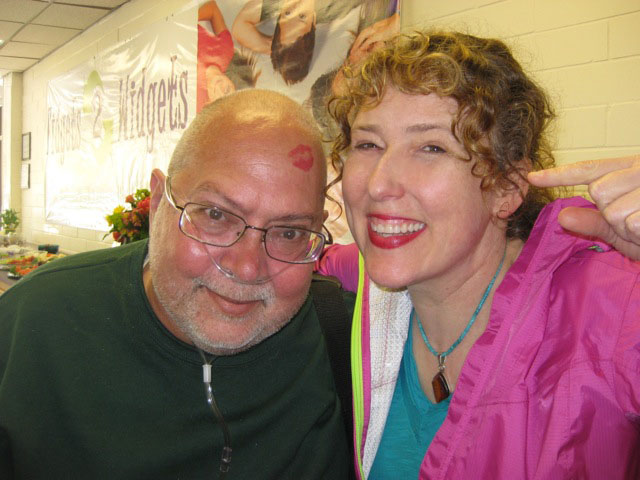I started kissing patients in med school. And I haven’t stopped.
During my third year pediatric rotation, I used to stay up late at night in the hospital, holding sick and dying children. I’d lift them from their cribs, kiss them, and sing to them, rocking them back and forth until they fell asleep. One day the head of the department pulled me aside. He said that I was a doctor when my patients needed a doctor and a mother when they needed a mother.
Twenty years later, I’m still mothering my patients.
I’m a family physician born into a family of physicians. My parents warned me not to pursue medicine. They worried that big government would kill the small-town physician. But I love being a family doctor. And I love my patients. I hug them and kiss them, and I do housecalls. And most patients call me Pamela or sweetie, or honey. They all have my home phone number. I’m on call 24/7, but I never feel like I’m working.
I’m not good with boundaries. I’m never sure when work ends and play begins. It all feels the same to me. Many of my patients are friends. I do their physicals and eat over at their homes for dinner.
I’m not a fan of professional distance. But I’ve been trained to maintain distance from patients. How can I remain distant when I’m looking deep inside people in places nobody has been before? How can I remain detached when delivering a mother’s first baby, saving a brother’s sister, or helping a child’s grandfather die?
Apparently, maintaining a safe distance from patients will help my objectivity, limit favoritism, maintain clear sexual boundaries, and prevent exploitation. But patients today don’t want professional distance; they want professional closeness with a doctor who has a big heart and a great love for people and service in a clinic where people feel warm, nurtured, loved and important.
And I want to be that kind of doctor.
The truth is: I can’t always stop patients with heart attacks from eating bacon double cheeseburgers. I can’t always stop smokers from smoking. I can’t always stop little kids from dying.
I can’t always cure, but I can always care—and kiss my patients.

Pamela Wible, M.D. is a family physician in Eugene, Oregon. She is author of Pet Goats & Pap Smears: 101 Medical Adventures to Open Your Heart & Mind.














As a grey haired boomer, I want you to know:
You are the kind of doctor we all remember from our childhoods and the kind we so dearly miss. It’s not the doctors but the stifling constricting settings in which they practice. Thank you for being their voice and ours too.
Times are changing Sara! More docs are getting back to basics. Check out the map of ideal clinics here: https://www.idealmedicalcare.org/ (click on map)
You are the kind of physician I had wanted to be. I am a community nurse and a few years back, I was in my last year of pre-med and accepted to medical school the following year. My husband died that year and my 2 boys then aged 12 and 14 were destroyed by it. I understood the time and effort involved in attending medical school and I knew they needed me more than ever so I dropped out.
Much has happened since and it is no longer possible for me to return to school but I am able to carry it through nursing my home care patients. I have been told for years that I need to distance myself but I simply can not. I see people day after day in their homes, I get to know them and their families well. I am caring for them at their most vulnerable so how could I maintain a professional distance? For me that is impossible. My job has never felt like work to me, I am simply visiting people and doing a few tasks while there. I think if health care providers all felt this way, the world would be a much better place. Keep up the excellent work and know that many admire what you are doing!
Jeannette ~ Thank you so much for your comment. I feel that nurturing and loving are undervalued in a traditional patriarchal medical model. Even men need to feel their feelings and it should be okay to be human and be a doctor, nurse, health care provider. When we disconnect we all suffer. What we need most is each other. Spread the love . . . It’s okay. 🙂 Pamela
I’ve always appreciated being a (PhD) nurse rather than an MD because what you describe as your practice are acceptable and expected behaviors for nurses. As a patient, I always seek out docs who are like you – smart and willing to share the human condition. And when bad things happen to me or someone in my family, I’d like you to stand by and comfort us, make certain you do everything (medical and palliative) to care for us – and not to bail just because you cannot imagine what to do if your treatment for —- disease is no longer effective. Thank you for sharing your stories. You exemplify that old medical adage to treat often, cure occasionally, and to care always!
Nice blog. Its realy worth reading and could be helpful for all the The General Practitioners.